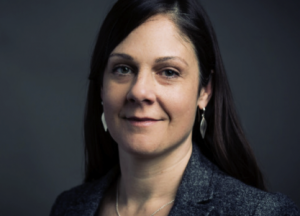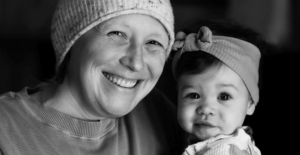Inspiring Stories of People Who Pushed for Answers
- These cancer warriors were initially misdiagnosed and then were correctly diagnosed with breast cancer after pushing for answers and fighting for their health.
- Always ask for appropriate screening measures, like a mammogram, if something is off; it could save your life.
- It’s critically important to seek a second opinion after a diagnosis; one doctor may see something that a different doctor misses. Always push for answers when it comes to your health, and speak up.
It’s so vital to pay attention to your body, push for answers, and push for a correct diagnosis. You are your greatest healthcare advocate insist upon screenings and tests until you have conclusive results. Your life may depend on it.
AP Reporter Meg Kinnard’s Breast Cancer was Misdiagnosed
Read MoreView this post on Instagram
"Those are words that you're supposed to want to hear from healthcare providers, 'Everything is okay, we're just gonna keep an eye on it, but we don't have to do anything right now,’" she tells SurvivorNet in an earlier interview. "Part of that is a relief, but the other part is kind of a nagging feeling that you try to push down,” says Kinnard.
She continues, “And as I went through the ensuing several years of monitoring and still being told that everything looked okay, that part of me was very much still there and still on alert and still worried and still thinking that there was more to this."
She finally got a correct diagnosis of breast cancer, underwent treatment and is now cancer-free.
When Should I Get a Mammogram?
Megan Murphy Wolf’s Breast Lump Twice Dismissed Before Breast Cancer Diagnosis
Megan Murphy Wolf had a lump in her breast and a family history of breast cancer, making her more susceptible to the disease. And yet, and when she visited two different doctors about the lump in her breast, she was dismissed and was not given a mammogram.

Wolf’s grandmother, mother, and sister have all faced breast cancer, too. When her symptoms got worse, her lump became swollen and achy. Neither doctor ordered a mammogram or any other tests for her. Six weeks passed, and her entire left breast was swollen. She then demanded testing, she writes in an essay for Good Housekeeping.
"The tests came back quickly,” she says, “but I didn't need to see the results. The look on the technician's face said it all: breast cancer.” Wolf underwent further testing, to stage the cancer. She then underwent chemotherapy, a double mastectomy, and radiation for treatment.
Murphy Wolf wants other women to use her story as fuel in advocating for themselves when it comes to their health concerns.
What Happens During a Double Mastectomy?
New Mom Discovers Cancer When Breastfeeding
Ellen Rabideau, 37, was a new mom when she began showing signs of breast cancer. Her baby had stopped latching while she was breastfeeding, which prompted her to pay more attention to her body. She previously received a clean mammogram in February 2021, but in May 2021, weeks after the birth of her baby, she showed signs of the disease.
"My right breast became very swollen and large and extremely painful," Rabideau recalls, speaking with WDIV. "And so at my six-week postpartum appointment, my OB-GYN said, 'That just doesn't look right.' I think you might have mastitis or some type of more serious infection." She was later diagnosed with stage three inflammatory breast cancer (IBC).

IBC is an aggressive form of breast cancer. It is also rare and only accounts for 1 to 5 percent of all breast cancers, according to the American Cancer Society. Rabideau is in remission from her breast cancer, and she’s a good example of the importance of paying attention to your body.
The Importance of Advocating for Your Health
We love how each of these cancer warriors took matters into their own hands and pushed for a correct diagnosis, even if it meant seeking a second or third opinion.
Dr. Zuri Murrell, director of the Cedars-Sinai Colorectal Cancer Center, tells SurvivorNet in an earlier interview that you should go into each doctor’s visit with a plan. He says, "Every appointment you leave as a patient, there should be a plan for what the doc is going to do for you, and if that doesn't work, what the next plan is.”
He continues, “And I think that that's totally fair. And me as a health professional that's what I do for all of my patients."
Be Pushy, Be Your Own Advocate… Don't Settle
Doctors are also not always in agreement about whether your symptoms might merit further testing. Sometimes, what your first doctor says might fall short of fact, and a second or third medical professional might be able to catch cancer before it grows and spreads. Dr. Steven Rosenberg, chief of surgery at the National Cancer Institute and one of America's most renowned cancer doctors, agrees.
"If I had any advice for you following a cancer diagnosis, it would be, first, to seek out multiple opinions as to the best care, because finding a doctor who is up to the latest information is important," Rosenberg previously told SurvivorNet in an earlier interview. "And it's always important to get other opinions so that you can make the best decisions for yourself in consultation with your care providers."
Cancer Research Legend Urges Patients to Get Multiple Opinions
Learn more about SurvivorNet's rigorous medical review process.

